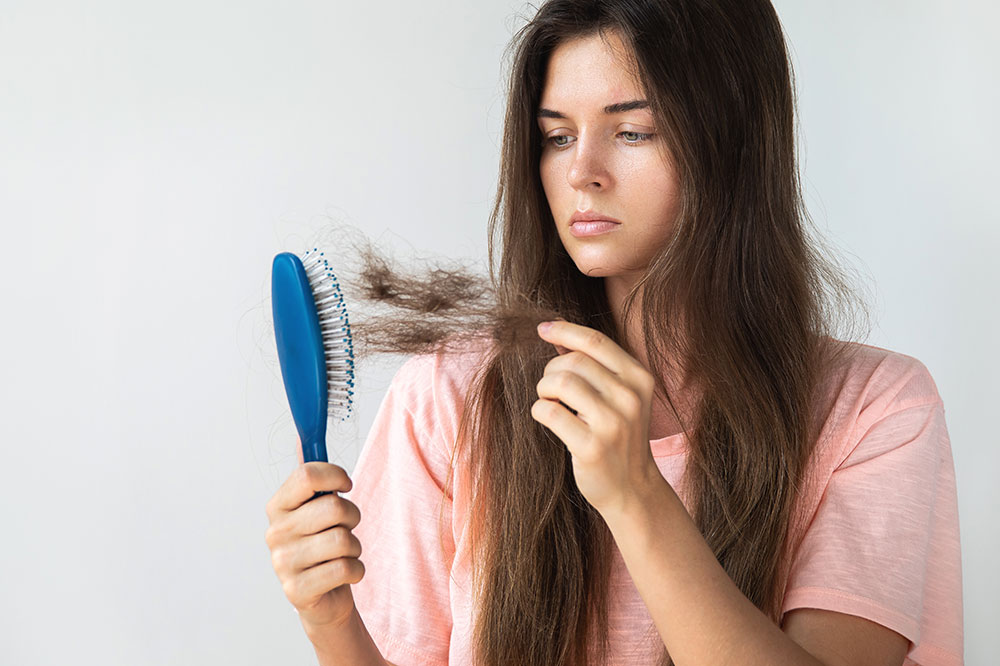Simple ways to prevent hair loss

Shedding of hair is a natural and common process of the body to get rid of old hair and promote growth. You may not even notice the few strands of hair that are replaced regularly by shedding and regrowth. However, sudden and excessive shedding results in hair loss. It can affect men and women of all ages and varies in terms of severity. The condition cannot be 100% cured with only treatment. But the following ways can help slow down shedding and prevent excessive hair loss.
Don’t stress
Stress is one of the main triggers of excessive hair loss. The body produces and releases certain hormones that regulate hair growth. Stress can cause a chemical imbalance in these vital hormones, which in turn, damages the hair follicles’ natural ability to regrow hair. Adopt practices such as eating healthy, exercising, staying hydrated, and controlling the urge to smoke or drink to manage stress. Instead, pursue healthy activities that can help you take your mind off something that bothers you and causes stress. Read, play sports, travel, and explore alternative lifestyles to manage stress better at work and home.
Maintain a proper diet
The food you eat plays a key role in your metabolic activity. A poor diet does not include the essential vitamins and minerals necessary to maintain and support vital body functions. Hair follicles are made of a protein called keratin, so switching to a protein-rich diet will supplement hair growth. You can incorporate more eggs, nuts, fish, low-fat dairy, chicken, and even turkey. Also, eat foods that are rich in Vitamin A as studies have shown it encourages the production of retinoid and sebum, both vital nutrients for promoting hair growth. They also nourish the follicles to gradually control hair loss.
Change your hair care routine
The way you wash, condition, and comb your hair can also reduce hair loss. Excessive use of hair products or harsh shampoos and even unnecessary styling can weaken hair follicles. So switch to a mild shampoo made with natural ingredients to keep the scalp and follicles clean. Oil your hair regularly to protect from external harsh elements. Coconut oil and olive oil are both excellent chemical-free choices. Avoid cornrows, tight braids, colorings, or any other hair processing treatments like perm or straightening. All of this can damage hair strands and follicles at the roots causing hair loss. Try and maintain your hair as naturally as possible. If you must get a new style or hair color, consider products that are chemical-free and feature organic colors.
Hair supplements
Artificial supplements help replenish the lack of essential nutrients and minerals including vitamins A, B, C, D, zinc, iron, and most importantly, selenium. Consult with your doctor to see which multivitamins are the best for countering mineral deficiency. Biotin is another vital nutrient that promotes healthy hair growth so check with a specialist to see how many milligrams of Biotin supplements you need. Note that you opt for hair supplements only in severe cases of hair loss.


